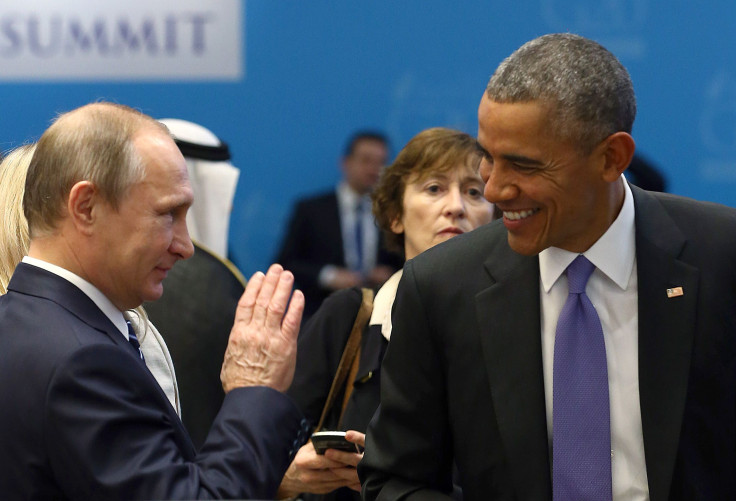Obama Rules Out U.S. Troops On Ground To Fight In Syria [VIDEO]

U.S. President Barack Obama doubled down on his foreign policy strategy toward Syria Monday, saying during a closing speech at the Group of 20, or G-20, summit in Antalya, Turkey, that the efforts in the region to combat the growing threat of the Islamic State group are accelerating but that he does not plan to alter the overall strategy. After Russia and the United States reached an agreement to mediate a ceasefire between Syria's opposition and ruling regime, Obama said his administration would not put more troops on the ground in Syria.
His remarks came after a tumultuous weekend in the wake of a deadly string of terrorist attacks in Paris.
Obama asked that people keep in mind that the threat posed by terrorist groups is not new and that his administration has been worried about attacks like those that took place in Paris Friday since he took office nearly seven years ago. On Monday, he said the threat of terrorism is difficult to approach because the enemy is willing to commit suicide during attacks.
“If you have a handful of people who don’t mind dying, they can kill a lot of people. That’s one of the challenges of terrorism,” Obama said. “It’s not their sophistication or the particular weaponry they possess, but it is the ideology they carry with them and their willingness to die.”
Responding to criticism in his own country, Obama said Republicans seeking his office when he leaves his second term in January 2017 generally didn’t have differing strategy ideas than his. He said that they present them in a way that implies a false level of strength, which he would not do.
“What I do not do is to take actions either because it is going to work politically or it’s going to somehow in the abstract make America look tough or make me look tough,” he said.
Obama continued to denounce the assertion by some that the conflict in the Middle East is a war with the religion of Islam. He repeated the message he has made before, saying that the Islamic State group, aka ISIS, does not represent the whole of Muslims across the globe. He invoked statements made by former President George W. Bush, a Republican, soon after the 9/11 attacks that the U.S. was “not at war with Islam or Muslims.”
“Whether you are European or American, you know, the values that we are defending, the values we’re fighting against [ISIS] for are precisely that we don’t discriminate against people because of their faith,” Obama said. “It is good to remember that the United States does not have a religious test, and we are a nation of many peoples of different faiths. Those are the universal values we stand for. That’s what my administration intends to stand for.”
The G-20 summit is a congregation of the leaders of the world's 20 major economies. It tends to focus on economic issues, but over the past two days, leaders have pledged to ramp up the fight against ISIS even as they offered few precise details on a plan for doing so. They also discussed the influx of refugees into Europe as a result of fighting in Syria and other countries.
The summit's focus on refugees and ISIS came after the militant group claimed responsibility for a series of attacks in Paris Friday night that left 129 dead and more than 350 injured. It also took responsibility for twin suicide bombings in Beirut Thursday that killed at least 43 people.
© Copyright IBTimes 2025. All rights reserved.






















